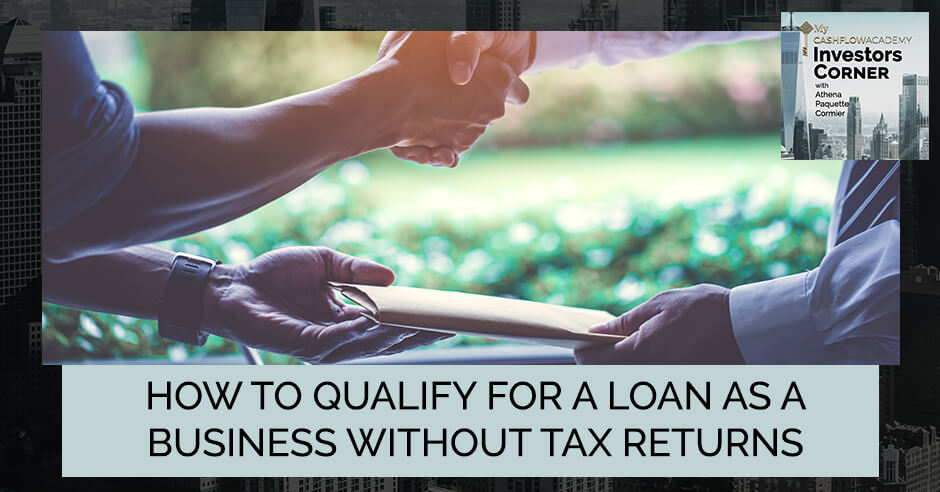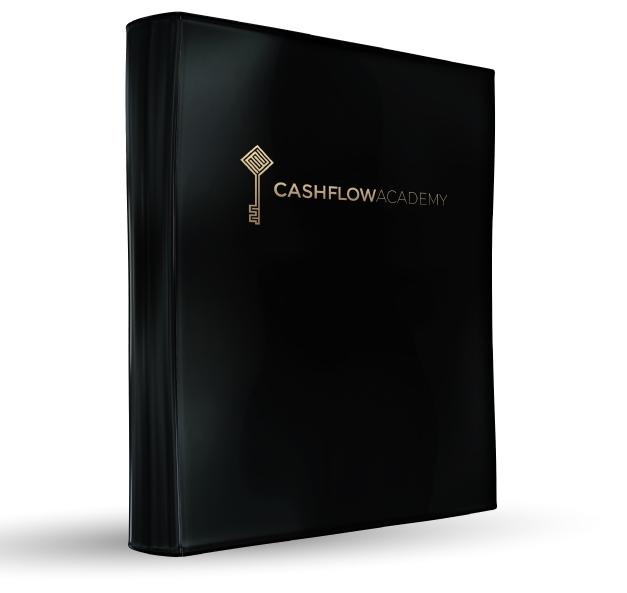
If you’re a new or established business owner, getting a loan can be difficult to downright impossible when you can’t provide tax returns. In this episode, you’ll find out that it is possible and there are three ways to do that. If you’re an investor, there’s an additional solution as well. So whether you’re trying to purchase a home, purchase an investment property, or refinance, join Athena Paquette Cormier in this episode to get over that stumbling block and get on with your loan.
—
Watch the episode here:
Listen to the podcast here:
How To Qualify For A Loan As A Business Without Tax Returns
This Mortgage Monday is how to get a loan where you don’t qualify based on your tax returns. I wanted to cover a common problem faced by many business owners, especially new business owners, in qualifying for a mortgage. Whether you’re trying to purchase a home, purchase an investment property, or refinance, this thing that I’m going to share is a big stumbling block at that. What is it? Your tax returns as proof of income.
You or someone you know have losses due to tax deductions on your tax return because you’re either a young company or a startup company. These are legal deductions but lower your income on paper, at least, making it difficult or even impossible to qualify for a loan. Maybe you’re an established business and in the last two years, you invested heavily in the expansion of your business, bought new equipment, or beefed up your staff. Now, you’re reaping the rewards.

In getting a loan, we look back in time. We look in the rearview mirror the last two tax returns in conventional lending and that doesn’t look so good. In order to get a regular mortgage loan, you don’t want to wait those two years. For example, you would have to wait for your 2018 and 2019 tax returns and then wait until 2020 to buy a home. We know that it’s a common problem over the last twenty-some years. I’ve specialized in helping business owners get mortgages despite tax returns that don’t show stable and high income.
What are these alternative sources? There are investors who help us with this. They’re called non-QM lenders. What are the solutions? Solution number one is asset-based lending. If you have enough money and mutual funds, CDs, IRAs, 401(k)s, we can use the value of those assets, excluding the down payment and closing costs if it’s a purchase, to qualify you for the loan. If you’re buying a home for $700,000 and you’re putting 20% down, which is $140,000, you need about $10,000 in closing costs money. That means that we need about $150,000. Most probably, we will need about $500,000 assets to qualify you. We do have another investor who will lend as much as you have in the bank. It’s a different type of asset lending. What they do is lend you as much as you have in those assets. If you have $700,000 in assets, they will give you a mortgage of $700,000. That’s another good way.
Solution number two is an asset depletion method. We look at all the assets that you have between 401(k)s, IRAs, CDs, mutual funds, and cash in the bank. We calculate all that by adding it all up minus the down payment and closing costs if you’re buying home. If you’re refinancing, we don’t have to do that. With asset depletion, it’s like amortization, where we’re using a certain timeframe of 30 years or 15 years depending on what the mortgage timeframe is. We’re calculating out like your mortgage payment. It’s the opposite. We’re taking that asset and depleting it over time. We’re not taking the money out. We’re not involved in your bank accounts. We’re using a mathematical formula to figure out how much income would that asset produce over 30 years. Some of our investors use a 4% return and slowly deplete that asset based on you earning 4%. Some deplete the asset with no interest credit.
Solution number three for business owners is the bank statement deposit program. What this is to use either twelve months of the deposit in your personal bank account and average those, or 24 months of your business bank account. Some of my clients who are business owners only deposit money in their business bank account. They put little in a personal account, the minimum that they need for daily survival type bills and living expenses. We average either 12 months of the personal account or 24 months of the business account and calculate your debt ratio based on that. No tax returns or pay stubs were ever provided, just your bank statements. We all also have one program that uses one bank statement.
[bctt tweet=”A big stumbling block when getting a loan is tax returns as proof of income.” username=””]
We have a loan solution number four, especially for investors. We use the cashflow of the property. No tax returns, no bank statements, no nothing. Like in commercial lending, will the property sustain itself? Let’s say you’re buying a fourplex that grosses $4,000 and the mortgage, tax, and insurance are $3,000. We call this debt servicing or debt coverage ratio. Basically, it’s a commercial approach to residential lending that says, “If the property can sustain itself, you can have the loan.” That’s perfect for people who don’t qualify with their tax returns but still want to invest in property.
That’s it for Mortgage Monday. If you know someone who might be able to use some of these solutions, please introduce us because I can help get a mortgage for them. If you want to be part of our mailing list for free events, including Women in Investing, send your address to 444999. Type in both your email address and the keyword mortgage fun and you’ll be added to our mailing list. The next topic is How to Eliminate or Avoid PMI if you’re buying a house or refinancing, even if you only have 5% down. Thanks for joining me for Mortgage Mondays.
Important Links:
- How to Eliminate or Avoid PMI – next episode

